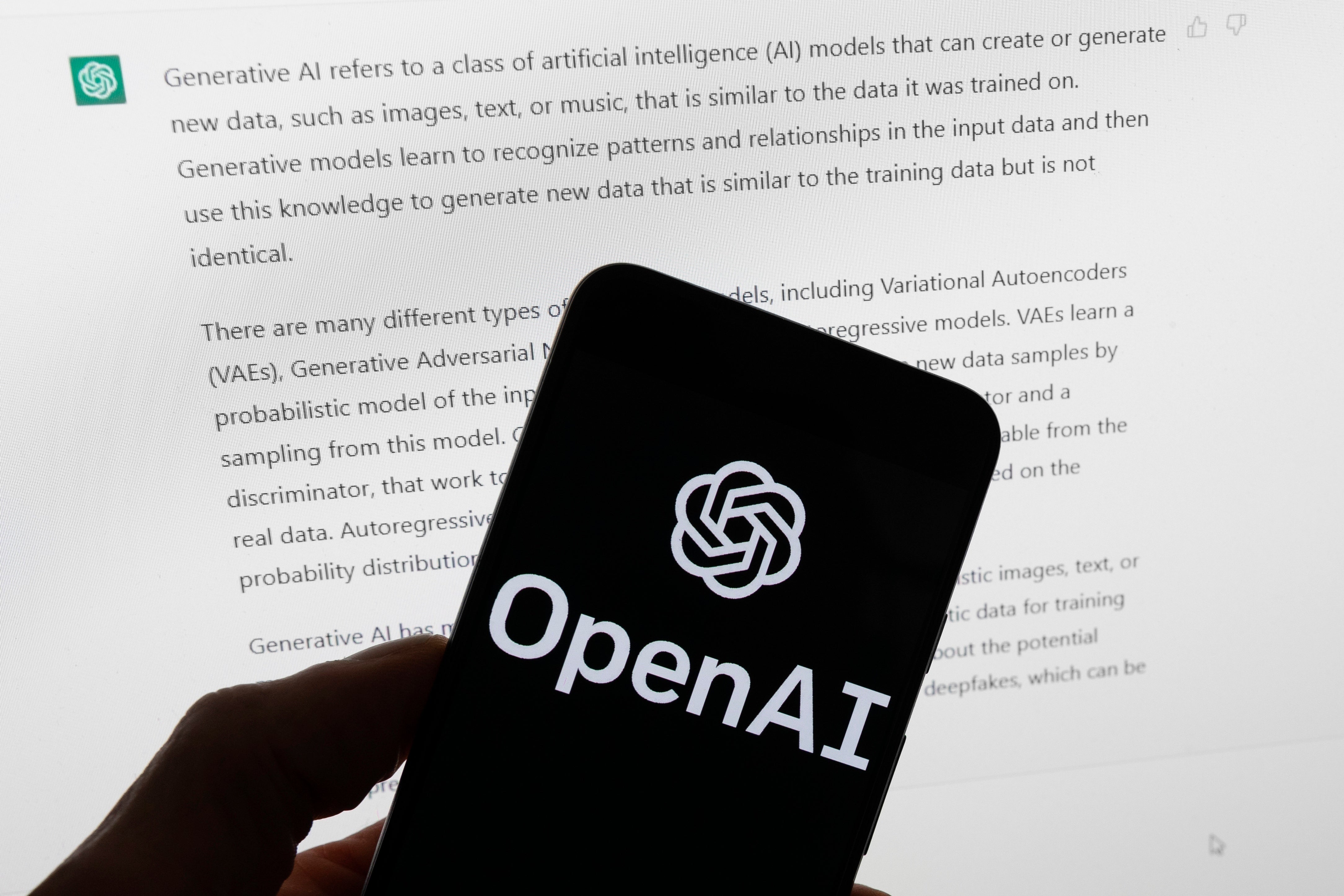Journalists seek regulations to govern fast-moving artificial intelligence technology
News organizations are seeking regulations to govern the fast-moving artificial intelligence technology that threatens upheavals for their businesses

Your support helps us to tell the story
From reproductive rights to climate change to Big Tech, The Independent is on the ground when the story is developing. Whether it's investigating the financials of Elon Musk's pro-Trump PAC or producing our latest documentary, 'The A Word', which shines a light on the American women fighting for reproductive rights, we know how important it is to parse out the facts from the messaging.
At such a critical moment in US history, we need reporters on the ground. Your donation allows us to keep sending journalists to speak to both sides of the story.
The Independent is trusted by Americans across the entire political spectrum. And unlike many other quality news outlets, we choose not to lock Americans out of our reporting and analysis with paywalls. We believe quality journalism should be available to everyone, paid for by those who can afford it.
Your support makes all the difference.Several news organizations, writers and photographers groups are pushing to be involved in creating standards for the use of artificial intelligence, particularly as it concerns intellectual property rights and the potential spread of misinformation.
In an open letter sent on Wednesday, they outlined priorities for setting rules on the technology, which is developing faster than regulators can keep up with.
“We ... support the responsible advancement and deployment of generative AI technology, while believing that a legal framework must be developed to protect the content that powers AI applications as well as maintain public trust in the media,” the organizations said.
The letter was signed by The Associated Press; Gannett; the News Media Alliance, which represents hundreds of publishers; Getty Images; the National Press Photographers Association; Agence France-Presse and others.
The organizations want to make sure intellectual property owners maintain their rights when AI operators use material for training. The AP last month made a deal with ChatGPT-maker OpenAI to license the news agency's archive of news stories.
The letter also calls for artificial intelligence companies to take specific steps to eliminate bias and misinformation in the material it produces. In particular, photographers are concerned about the ability of artificial intelligence to create false images.
Seven U.S. companies that are leading AI developers agreed in July to voluntary safeguards set by President Joe Biden's administration for building their technology, but the commitments aren’t enforceable and don’t touch on intellectual property concerns.